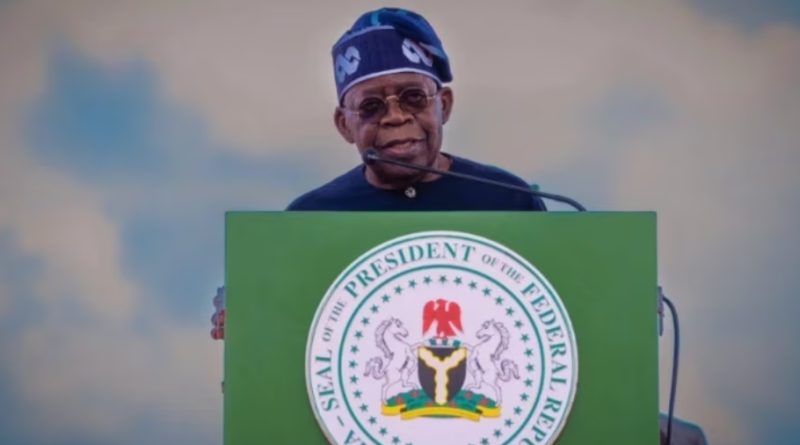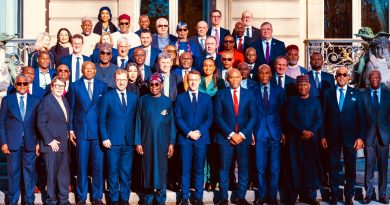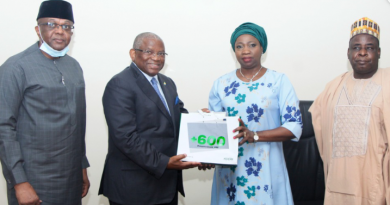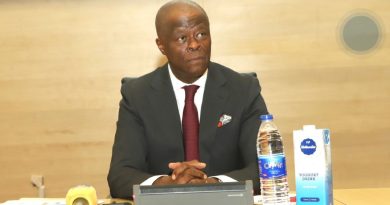#ENDBADGOVERNANCE PROTEST#: The Dissection of President Tinubu’s Speech
By Iyke Ezeugo
The Prelude to a Nation’s Despair
In the grand tradition of political theater, President Bola Ahmed Tinubu’s recent address to the nation was anticipated with bated breath. The #EndBadGovernance protests, which had been brewing for over a month, were the result of a populace desperate for change. Yet, when the moment arrived for the Commander-in-Chief to speak, what followed was less a speech and more a soliloquy of self-aggrandizement, reminiscent of Shakespeare’s Much Ado About Nothing.
The President’s Address: A Detailed Dissection
Acknowledgement Without Action: A Leadership Void
President Tinubu’s address acknowledged the “turmoil and violent protests,” recognizing the youth’s desire for progress. However, his words lacked empathy for the lives lost and failed to offer a concrete plan to address the grievances and prevent further losses. The true essence of leadership was conspicuously absent.
The Burden of Leadership: A Question of Priorities
Governing the most populous black nation is indeed a significant challenge. Yet, being too busy to respond to a month-long warning of protests raises questions about priorities. Was his time consumed by security and political strategy mapping, or by distributing palliatives, a strategy that worked during the election but may not yield the same results now? This approach may distract the masses with short-term gains, but it fails to address the root causes of the protests.
For the real issue, empathy and action were lacking. The situation demands more than just acknowledgement. It requires empathy for the victims and a clear plan to address the grievances. The leadership must move beyond mere words and take concrete actions to resolve the issues. It appears the President does not know that the people will not be sustainably swayed by temporary measures; this is the beginning of the demand for meaningful change.
The Brutes Speak:
Meet the Supreme Rulers of Nigeria: Clueless in Charge
In the hallowed halls of power, a group of leaders are echoing through the corridors, sending shivers down democracy’s spine. It’s like they’re playing a game of “Let’s See How Far We Can Push It” without realizing the consequences. They’re so out of touch, even the most naive kid on the street can see them careening towards an inadvertent invitation to military intervention like a runaway train.
Meanwhile, Mary J. Paul, a bossom friend, after reading my earlier writeup where I advised against protest and called on the president to respond appropriately, whispered a little secret in my ear – a John F. Kennedy quote that seems to have flown right over President Tinubu’s head: “Those who make peaceful revolution impossible will make violent revolution inevitable.“Oops, did I just hear a “personal threat” alert go off in their heads?
Let me remind them (again): protests, demonstrations, and riots are like three peas in a pod – thin line, nanosecond transition time. I warned them, I advised them, I even drew a diagram (okay, not that last one, but I should have!). The records are still there, guys. Don’t say I didn’t warn you…”
Divided We Stand: The Citizenry’s Reaction
Post-Speech, Nigeria Divided into Three Camps: The Disappointed (70%): “Seriously, That’s It?”
This group face-palmed so hard they’re still trying to pick up the pieces of their shattered expectations. They saw right through the President’s thin veil of words and thought, “Is that all you’ve got?”
The Indifferent (20%): “Meh, What’s the Point?”
These folks have been disillusioned for so long, they’ve built a shrine to apathy. They expected nothing and got exactly that. Their response? A resounding shrug.
The Jubilant Loyalists (10%): “Our Leader Can Do No Wrong!” – ‘Enyi n’aga n’anyi so gi n’azu , Gwogo gwom gwo!’
This merry band of sycophants, ethnic die-hards, and political jobbers thinks the President’s speech was the best thing since sliced bread. They’re so busy drinking the Kool-Aid, they’ve forgotten what reality tastes like. They’re quick to label protest organizers as political enemies and claim economic hardship is just a myth perpetuated by haters. Talk about living in a bubble!
And then there’s the religious bigots, who’ve finally realized that hunger doesn’t care about your faith. Welcome to the party, folks! Let’s hope this epiphany sticks. The President and his fanatics are a match made in… well, not heaven. Their loyalty is built on illogical allegiance and ignorance – the same ingredients that made his election a recipe for disaster. Emilokan: it’s my turn – that’s the key qualification.
Of course, there are unbelievable strengths in the President’s Address but whether the strengths count for him is subject to our individual evaluations. Here are some of them:
Acknowledgment of Protests:
Oh, Joy! The President Acknowledges Unrest!
In a groundbreaking feat of stating the obvious, the President recognized that the nation is experiencing a moment of unrest. Bravo! One wonders if he’d have noticed if the protests were held in a whisper. But let’s not get ahead of ourselves – after all, acknowledging the unrest is almost as good as addressing its root causes, right? And what a relief that the President didn’t bother to explore whether this unrest could have been averted with, say, actual leadership and foresight. I mean, who needs to learn from mistakes when you can just wing it and hope for the best? The lives lost and property damaged? Collateral damage, mere trifles!
But hey, let’s give credit where credit is due – the protesting masses should be thrilled that the President has graciously acknowledged their “unrest”. I mean, it’s not like they’re demanding actual change or anything. They should just be content with the fact that they’ve managed to disturb the President’s rest. Kudos to them for that remarkable achievement!
And let’s not forget the Vice President, Senate President, and ministers – they’ve also been kept awake though inside eating and no doubt pondering the intricacies of “unrest” and how to further quench it by refusing to give it timely and deserving attention. It’s a tough job, but someone’s gotta do it.
Call for Unity: A Noble Sentiment, But Action Speaks Louder
The President’s plea for national unity is a commendable sentiment. However, it raises questions about his understanding of the protests. Is he suggesting that the protests are driven by disunity, or does he believe that a unified approach would be more effective? Indeed, unity can achieve more, including ending ‘bad government.’
The President assured Nigerians that he feels their pains.
Oh, really? But, we must ask, which specific pains is he feeling? Is it the pain of the failed electoral system and the pains of the cash-and-carey Judiciary? The pains caused by his administration’s inaction, the pain inflicted by his officials’ insensitive remarks, or the pains of exorbitant cost of living, or the pain gaging the people, or the pains resulting from the high-handedness of his security agents? Or is it the pain of witnessing corruption and waste condoned by his government?
As we cannot know his true feelings, we are left wondering if he is truly empathetic or simply disconnected from the people’s struggles. His words, though well-intentioned, ring hollow when contrasted with the actions of his administration. We need tangible solutions, not just sentimental appeals for unity.
Commitment to Democracy:
Democratic Principles: The Ultimate Shape-Shifter! In a bold move, the President reaffirmed his commitment to democratic principles. How comforting to know that he’s still on board with that whole “power to the people” thing… or so it seems.
But wait, what’s this? Democratic principles are changing faster than the President’s stance on protests! It’s like they’re playing a game of “Principle Twister” – where the rules bend and twist to suit the leader’s whims.
Proactive dialogue? Ha! That’s so last season. The President used to love a good chat with the people when he was on this side of the table, but now it’s all about silencing dissenting voices. And the right to protest? Oh, please, that’s just a distant memory. He’s all about quashing those pesky demonstrations now.
Perhaps he’s just committing to a new set of principles – you know, the ones that say “do as I say, not as I did”? Or maybe it’s just a clever ploy to keep us on our toes. After all, who needs consistency in leadership when you can have a thrilling game of “Principle Roulette”? Place your bets, my people!
Now, that we have seen the strengths in his speech, let’s see whether there are weaknesses and omissions:
Lack of Concrete Solutions:
No tangible plans were provided to address the economic crisis. No plan or framework was presented on the path of dialogue he advised protesters to take.
Defensiveness:
The President’s Masterclass in Deflection! In a stunning display of logical gymnastics, the President justified his policies while conveniently ignoring their glaring flaws. It’s like he’s saying, “Hey, my policies are perfect, and if you don’t like them, it’s because you’re a political enemy!”
Let’s recap the highlights of his fiscal wizardry:
– Fuel subsidy removal: announced without warning, because who needs planning or palliatives, right?
– Yacht purchases, new VP residences, private jets, and SUVs for lawmakers: become priorities!
– Frivolous spending and crowd travels: because the nation’s treasury is his personal piggy bank!
– Corruption and oil theft: just a minor leak in the system (or not)!
– Strangling Dangote Refinery: to keep exporting crude and importing refined products at exorbitant prices, because jobs and economic growth are overrated!
But hey, according to the President, there’s no economic hardship or bad governance. It’s all just a political ploy by his enemies. In his world, everything is politics:
– Demarketing Dangote Refinery? Political!
– Workers struggling to make ends meet? Political!
– Food becoming a luxury item? Political!
– Demands to cut governance costs and strategic reforms? Political!
It’s like he’s saying, “I’m perfect, and if you don’t like it, it’s because you’re playing politics!” Meanwhile, the masses continue to suffer, but hey, at least the President’s handlers that wrote his address are happy!
Vagueness:
The President’s Vague Speech is only but A Masterpiece of Ambiguity.
In a thrilling display of linguistic acrobatics, the President delivered a speech that was as clear as mud. Because, why bother with specifics and timelines when you can just wing it and hope for the best? Many are left wondering if the President takes anything about the protest seriously, or if he needs to hire foreign speechwriters to add some much-needed substance to his words, even if he doesn’t mean it. After all, who needs accountability when you can just promise the world and then:
– Jet off abroad for a “very important” meeting or medicals
– Become “unavailable” (aka too busy)
– Establish a committee or panel of inquiry that will take an eternity to accomplish nothing
– Use the exercise as a clever distraction until the end of his tenure.
It’s like he’s saying, “Trust me, I’ve got this!” while his actions scream, “I have no idea what I’m doing!” But hey, at least the speech was “interesting” – in a vague, non-committal, utterly unconvincing kind of way.
The Unanswered Questions
In the wake of Tinubu’s speech, several questions remain unanswered, leaving the citizens to ponder their fate:
1. Economic Hardship: Why was there no direct acknowledgment of the economic hardship faced by the masses? How does the government plan to address the skyrocketing cost of living and inflation?
2. Corruption: What concrete steps are being taken to curb the endemic corruption within the government? Are there plans to audit and reduce the exorbitant expenditures on government officials?
3. Oil Politics: What is the administration’s stance on the ongoing issues surrounding the Dangote Refinery and the broader oil sector? Will there be transparency in oil licensing and a crackdown on oil bunkering and theft?
4. Security Forces’ Conduct: How will the government address the high-handedness and brutality of security forces against peaceful protesters? What measures will be put in place to enable proactive and productive civic engagements, avert protest, and ensure responsiveness and accountability?
5. Dialogue and Inclusivity: While the president called for unity, what specific platforms will be created for meaningful dialogue with the protesting youths and other stakeholders?
The Broader Implications
The president’s address, in its vagueness and lack of concrete solutions, *serves as a microcosm of the broader issues plaguing Nigerian governance.* The disconnect between the rulers and the ruled has never been more apparent. The indifference, tone-deafness, and arrogance of the ruling elite stand in stark contrast to the palpable frustration and desperation of the populace.
Understanding the demands
The #EndBadGovernment Protest is a simple yet Powerful Demand!
To the average Joe, *the protest is about one thing: ending economic hardship.* You know, the usual – being able to afford food, pay rent, regards TV, buy data, pay transport, pay electricity bill, buy gas, and maybe even enjoy a cold pure water without worrying about the cost. Not too much to ask, right? Perhaps a more sensible and efficient management of the fuel subsidy removal, enabling local refineries to operate without huddles to bring down fuel price, reduction on cost of governance (the yaltch, the presidential jet, the SUVs, the far salaries and allowances of the executives and legislatures, and plugging just a few of the leaking holes would have sorted this and more.
If only the President had addressed this one simple issue *(economic hardship)*, he’d be the hero of the masses. No need to tackle the complex 15-point demands, just throw the people a bone and say, “Hey, I feel you, let’s work on this economy thing.”
But no, instead, he chose to ignore the elephant in the room (or in this case, the empty pockets and starving stomachs of the people). The 15-point demands, which aim to tackle corruption, improve governance, and address socio-economic challenges, were apparently too much to handle standing.
It’s like he’s saying, “You want bread? Ha! I’ll give you a fancy speech and a pat on the back instead.” Meanwhile, the people are still struggling to make just one end meet the middle. No one is at the moment dreaming of the luxury of making all the ends meet at their various relaxing points. Ah, the classic “let them eat cake” approach to governance.
The Path Forward: Lessons and Reflections
As Nigeria stands at this critical juncture, the lessons from history are clear: *sustainable change requires not just rhetoric but action.* The government must move beyond mere acknowledgment to implement policies that genuinely address the grievances of its citizens. Transparency, accountability, and inclusivity must be the pillars of this new approach.
The protests, demonstrations, and, unfortunately, riots are not just cries for help but demands for a fundamental restructuring of the Nigerian state. As Soyinka once observed, “The man dies in all who keep silent in the face of tyranny.” It is a call to action for both the leaders and the led, to transcend the perfunctory and engage in the substantive work of nation-building.
Ultimately!
President Tinubu’s speech on the #EndBadGovernance protests, while rich in political platitudes, falls short of providing the vision and concrete steps needed to address Nigeria’s multifaceted crises. It is a reminder that in the theater of governance, words must be matched by deeds, and leadership must be anchored in empathy, transparency, and a genuine commitment to the welfare of all citizens.
Dr. Iyke Ezeugo, the author, is a researcher and satirist who uses his parody to provide profound insights on public affairs, sparking meaningful conversations and debates. Through his works, he challenges the status quo, promotes critical thinking, and inspires fresh perspectives on contemporary issues.




